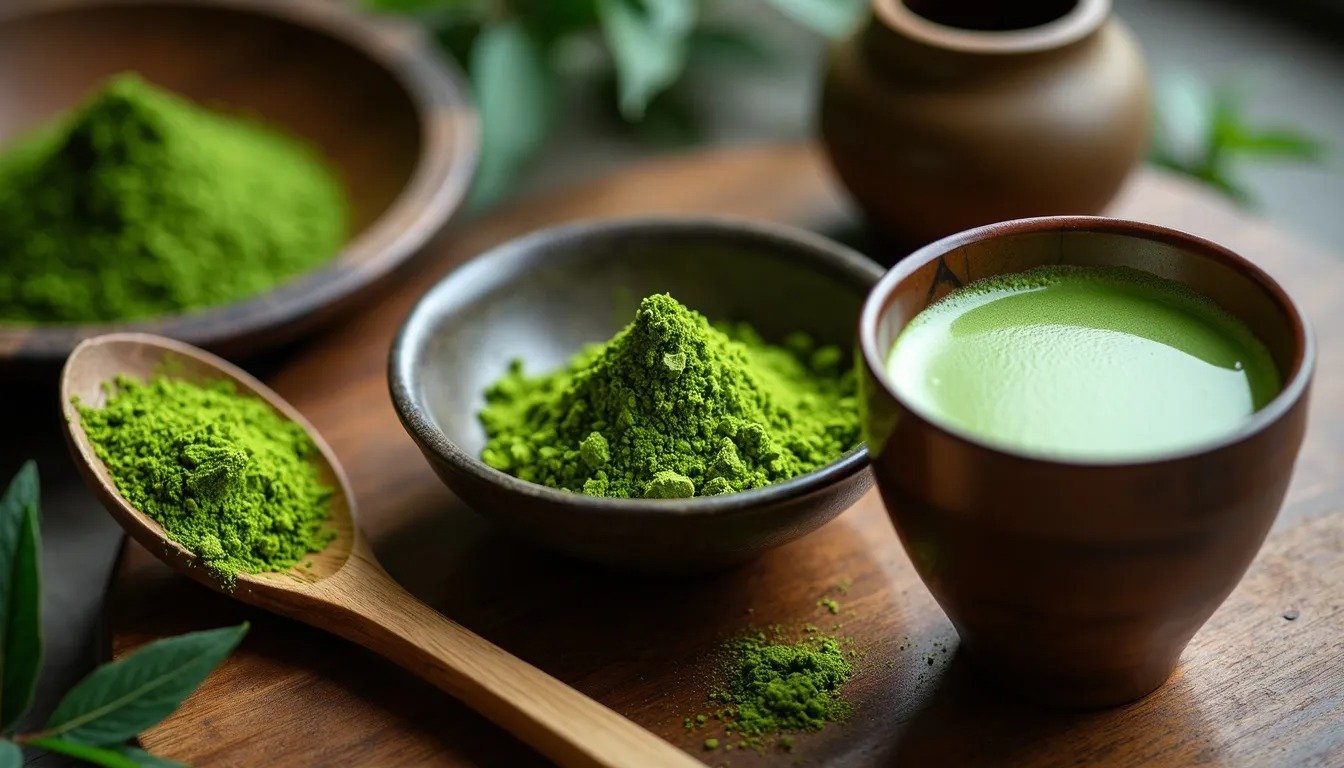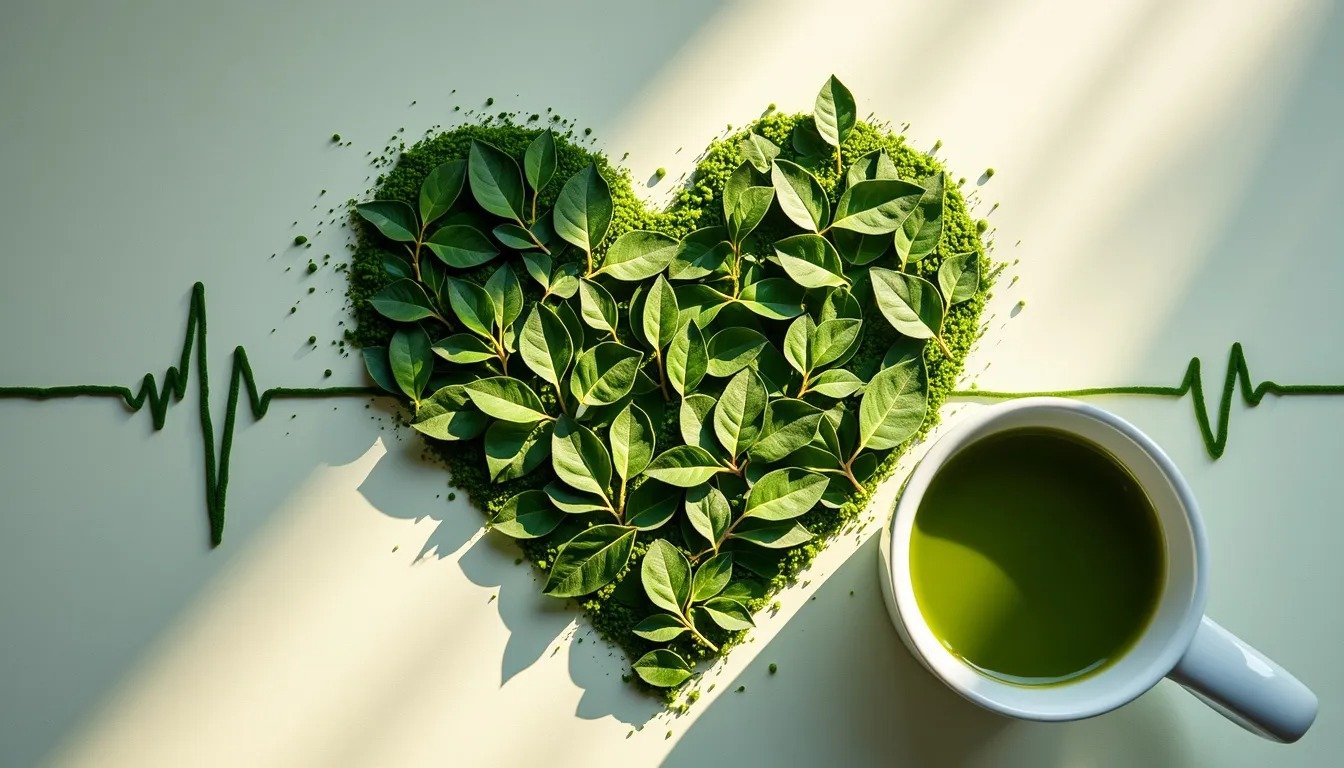Does Matcha Green Tea Have Caffeine? Benefits and Facts
In the world of health and wellness, matcha green tea has surged in popularity, not only for its distinct flavor but also for its comprehensive health benefits. A common inquiry among enthusiasts and newcomers alike is, "does matcha green tea have caffeine?" This question highlights an important aspect of its consumption and effects on energy levels, juxtaposed with traditional caffeine sources like coffee. Understanding the caffeine content in matcha, alongside its benefits, can enlighten individuals seeking a natural energy boost without the harsh effects often associated with other caffeinated beverages.
This article delves into the essential aspects of matcha, starting from its origins and what distinguishes it from other teas, to an in-depth analysis of its caffeine content and how it compares to coffee. Furthermore, we will explore the array of health benefits associated with matcha consumption, considering expert opinions and scientific research. While matcha is revered for its energy-boosting properties, it is also crucial to address the potential side effects of caffeine present in matcha, ensuring a balanced and informative perspective. Through this comprehensive overview, readers will gain valuable insights into why matcha may be a superior choice for their daily routine, offering not just an energy boost but a multitude of health advantages.
What is Matcha?
Matcha, known scientifically as Camellia sinensis, is a finely ground powder of specially grown and processed green tea leaves. Its origins trace back to China, where it was first used in the Tang Dynasty between the 7th and 10th centuries. During this era, tea leaves were steamed and formed into bricks for easier transport, laying the groundwork for matcha's unique preparation method. The practice of grinding these tea leaves into a fine powder and mixing them with water became a precursor to modern matcha.
The evolution of matcha continued in Japan after the practice was introduced by Eisai, a Japanese Buddhist monk who brought the seeds from China in the 12th century. In Japan, matcha began to take on new cultural significance and underwent further refinement. By the 15th century, Japanese tea cultivators developed the technique of shade-growing the tea plants, a pivotal change that enhanced the chlorophyll levels and altered the flavor profile of the tea, turning it into a bright green powder distinguished from its earlier, more brownish versions.
The unique aspect of matcha lies in its preparation and consumption. Unlike traditional green teas that are steeped and then removed from water, matcha is whisked into hot water or milk, allowing the drinker to consume the whole leaf. This method not only preserves all the antioxidants, vitamins, and minerals contained in the leaves but also provides a richer, more intense flavor.
Caffeine Content in Matcha
Matcha, a finely ground powder from green tea leaves, is renowned not only for its unique preparation and rich history but also for its caffeine content, which offers a distinct energy boost compared to other beverages. This section explores the caffeine content in matcha, how it compares to other drinks, and the factors that influence its caffeine levels.
How much caffeine is in matcha?
On average, a single teaspoon (about 2 grams) of matcha powder contains approximately 70 milligrams of caffeine. This amount varies depending on the quality and preparation of the matcha. High-quality ceremonial grade matcha often contains more caffeine than culinary grade due to the use of younger, more tender leaves. The unique aspect of matcha is that it involves consuming the whole tea leaf in powdered form, which can lead to a higher intake of caffeine compared to other green teas where only the infused water is consumed.
Comparison with other beverages
When comparing matcha to traditional coffee, the caffeine content in a standard cup of coffee (approximately 95-200 milligrams per 225 grams) is higher than that in a similar serving of matcha. However, matcha provides a more sustained energy boost without the common "jitters" associated with coffee due to its unique combination of caffeine and L-theanine. This amino acid slows the absorption of caffeine, leading to a prolonged and steady release of energy.
Here's a quick comparison of caffeine content per cup:
| Beverage | Caffeine Content per Cup |
|---|---|
| Matcha | 70 mg |
| Coffee | 95-200 mg |
| Black Tea | 47 mg |
| Regular Green Tea | 28 mg |
Factors affecting caffeine content
Several factors influence the caffeine content in matcha:
Quality of Matcha: Higher-quality matcha typically has more caffeine.
Harvest Time: Leaves harvested earlier in the season may have higher caffeine levels.
Shading Process: Tea plants shaded for longer periods before harvest tend to have increased caffeine and chlorophyll levels.
Preparation Method: The amount of matcha powder used and the temperature of the water can also affect the caffeine concentration.
Understanding these factors can help matcha enthusiasts customize their experience by adjusting the type of matcha and the method of preparation to suit their caffeine sensitivity and preference for flavor.
Matcha's caffeine content, coupled with its health benefits and the unique slow release of energy, makes it a favored choice for those looking for a more balanced and sustained energy boost throughout the day.
Health Benefits of Matcha
Matcha, a finely ground powder from specially grown and processed green tea leaves, is celebrated not only for its unique flavor but also for its extensive health benefits, particularly its high antioxidant content. This section delves into the various health benefits of matcha, emphasizing its antioxidant properties, impact on heart health, and advantages over traditional coffee.
Antioxidants and their Benefits
Matcha is exceptionally rich in catechins, a type of phenolic compound known as natural antioxidants. These compounds play a crucial role in stabilizing harmful free radicals, which are unstable molecules that can damage cells and lead to chronic diseases. The predominant catechin in matcha, epigallocatechin gallate (EGCG), has been studied extensively for its cancer-fighting abilities and its potential to prevent the growth and spread of tumors.
Furthermore, matcha contains a unique set of natural antioxidants due to its preparation method, which involves grinding the whole tea leaves. This process ensures that matcha retains a higher content of catechins and other antioxidants compared to standard green tea. Studies suggest that these antioxidants can help protect against heart disease and reduce blood pressure and bad cholesterol levels, making matcha a powerful beverage for maintaining cardiovascular health.
Impact on Heart Health
The antioxidants in matcha not only combat free radicals but also offer significant benefits for heart health. Catechins, particularly EGCG, have been shown to enhance heart health by reducing arterial blockage, lowering cholesterol levels, and improving blood flow. These effects are crucial for preventing heart disease and reducing the risk of heart attacks.
Matcha's impact on heart health is further supported by its ability to enhance lipid metabolism and prevent blood clot formation, thanks to its anti-inflammatory and antioxidant properties. Regular consumption of matcha may lead to a lower risk of cardiovascular diseases, underscoring its status as a beneficial drink for heart health.
Advantages over Coffee
While both coffee and matcha contain caffeine, the way caffeine is absorbed from matcha is significantly different due to the presence of L-theanine, an amino acid that slows caffeine absorption. This unique combination not only provides a more sustained energy boost without the common 'jitters' associated with coffee but also promotes a state of relaxed alertness. Unlike coffee, which can cause spikes and crashes in energy levels, matcha offers a smoother increase in energy, making it an ideal choice for those sensitive to the harsher effects of caffeine.
In addition to its more balanced caffeine high, matcha surpasses coffee with its higher antioxidant levels. These antioxidants contribute to a host of health benefits, from enhanced metabolic rate to improved mental clarity and reduced risk of chronic diseases. The presence of these compounds makes matcha a superior alternative for health-conscious individuals.
In conclusion, matcha's rich antioxidant profile, combined with its benefits for heart health and its advantages over coffee, make it a valuable addition to a healthy lifestyle. Its unique properties not only provide physical health benefits but also offer mental clarity and a sustained energy boost, distinguishing matcha as a beverage of choice for health enthusiasts around the globe.
Side Effects of Caffeine in Matcha
Matcha, a finely ground powder made from green tea leaves, is celebrated for its health benefits but also contains caffeine, which can lead to side effects if consumed in excess. Typically, a teaspoon of matcha contains around 70 mg of caffeine, comparable to a cup of coffee, which may range from 95 to 200 mg. This section outlines the potential side effects, ways to manage caffeine intake, and symptoms of caffeine overdose related to matcha consumption.
Potential Side Effects
Consuming too much matcha can lead to jitteriness, anxiety, headaches, and insomnia, especially in individuals sensitive to caffeine or those with underlying health conditions. Other side effects include increased heart rate, dizziness, nausea, and heart palpitations. It is crucial to monitor how your body reacts to matcha to avoid these adverse effects.
Managing Caffeine Intake
To manage caffeine intake effectively, it is recommended to start with a small serving of matcha, such as half a teaspoon, and gradually increase the amount as needed. This approach helps in identifying the optimal amount that provides the benefits without leading to side effects. Additionally, consuming matcha alongside or after meals can mitigate some adverse effects like stomach upset, as tannins in matcha can aggravate an empty stomach.
Symptoms of Caffeine Overdose
Symptoms of caffeine overdose from matcha include very fast or irregular heartbeat, shakiness, feeling sick or vomiting, and confusion, which may escalate to a panic attack. If any of these symptoms occur, it is advised to cease matcha consumption immediately and seek medical attention if the symptoms persist or worsen. Long-term excessive consumption can lead to more severe health issues such as stomach ulcers, difficulty sleeping, and anxiety.
Understanding these aspects of matcha’s caffeine content can help enthusiasts enjoy the drink responsibly while minimizing the risk of adverse effects.
Discover Your Best Self with PKJcoach
Ready to unlock your full potential and elevate your wellness journey? At PKJcoach, we understand the importance of a balanced lifestyle, just like the sustained energy matcha provides. Why not take the first step towards enhanced well-being with our expert coaching? Book your free 30-minute session now and gain access to our insightful journals. Start your transformation today! Schedule Your Session
Conclusion
Throughout this article, we have explored the nuanced domain of matcha green tea, engaging with its caffeine content, its distinguished health advantages, and its comparison with other popular beverages. We noted that despite matcha's lower caffeine level compared to coffee, it provides a uniquely balanced energy boost, courtesy of the synergistic effects of caffeine and L-theanine. This equilibrate enhancement not only mitigates the jittery aftermath often associated with coffee but also augments cognitive functions and alertness over a more extended period. Such a trait, coupled with the rich antioxidant profile of matcha, underlines its superior health benefits, ranging from enhanced cardiovascular health to potential anti-cancer properties, as narrated by various expert opinions and scientific studies.
The broader implications of incorporating matcha into one's daily regimen extend beyond the mere physical health benefits; they also encapsulate a profound impact on mental well-being and productivity. This discussion, enriched with expert opinions and comparative analyses, threads an informative and engaging narrative that not only answers the charmingly curious question about matcha's caffeine content but also presents readers with a holistic view of its remarkable health benefits. As we navigate through the evolving landscape of dietary preferences and health consciousness, matcha stands out not just as a superior choice among caffeinated beverages but also as a beacon of wellness, inviting further exploration and appreciation for its versatile contributions to a healthier lifestyle.




